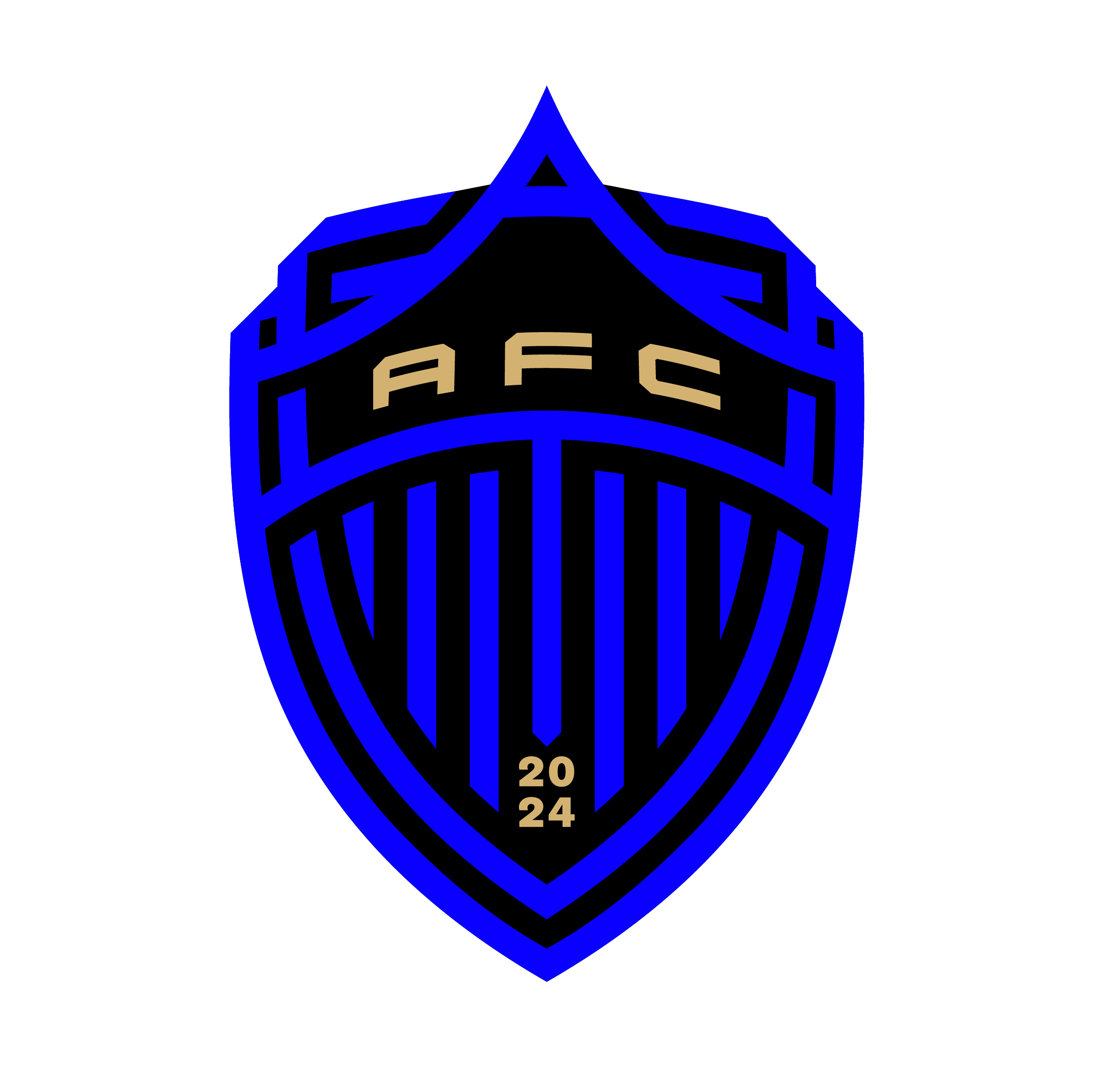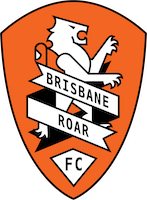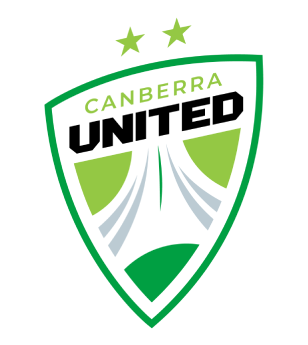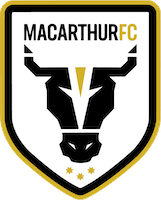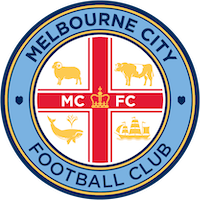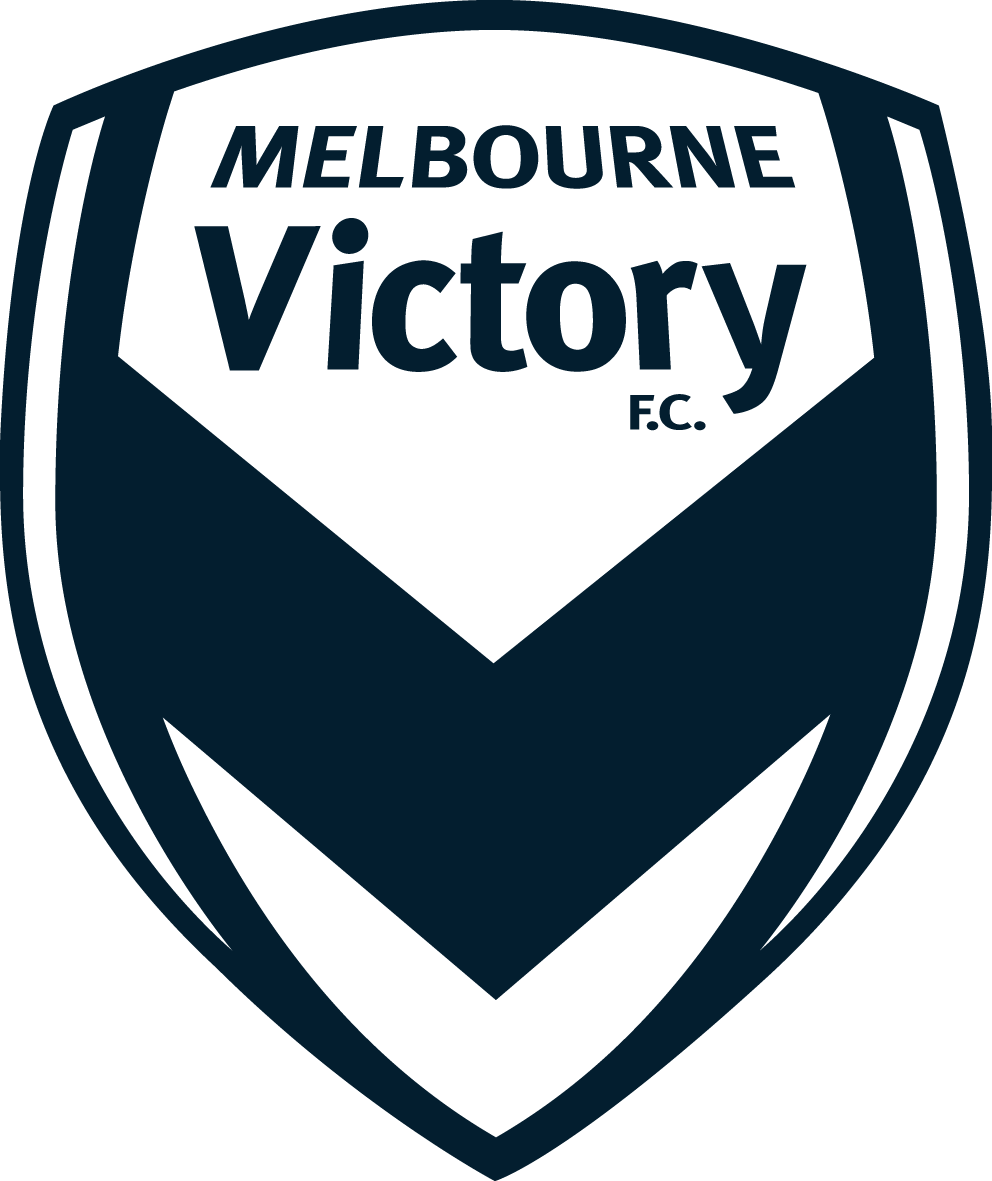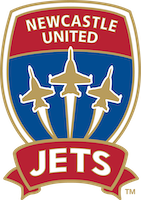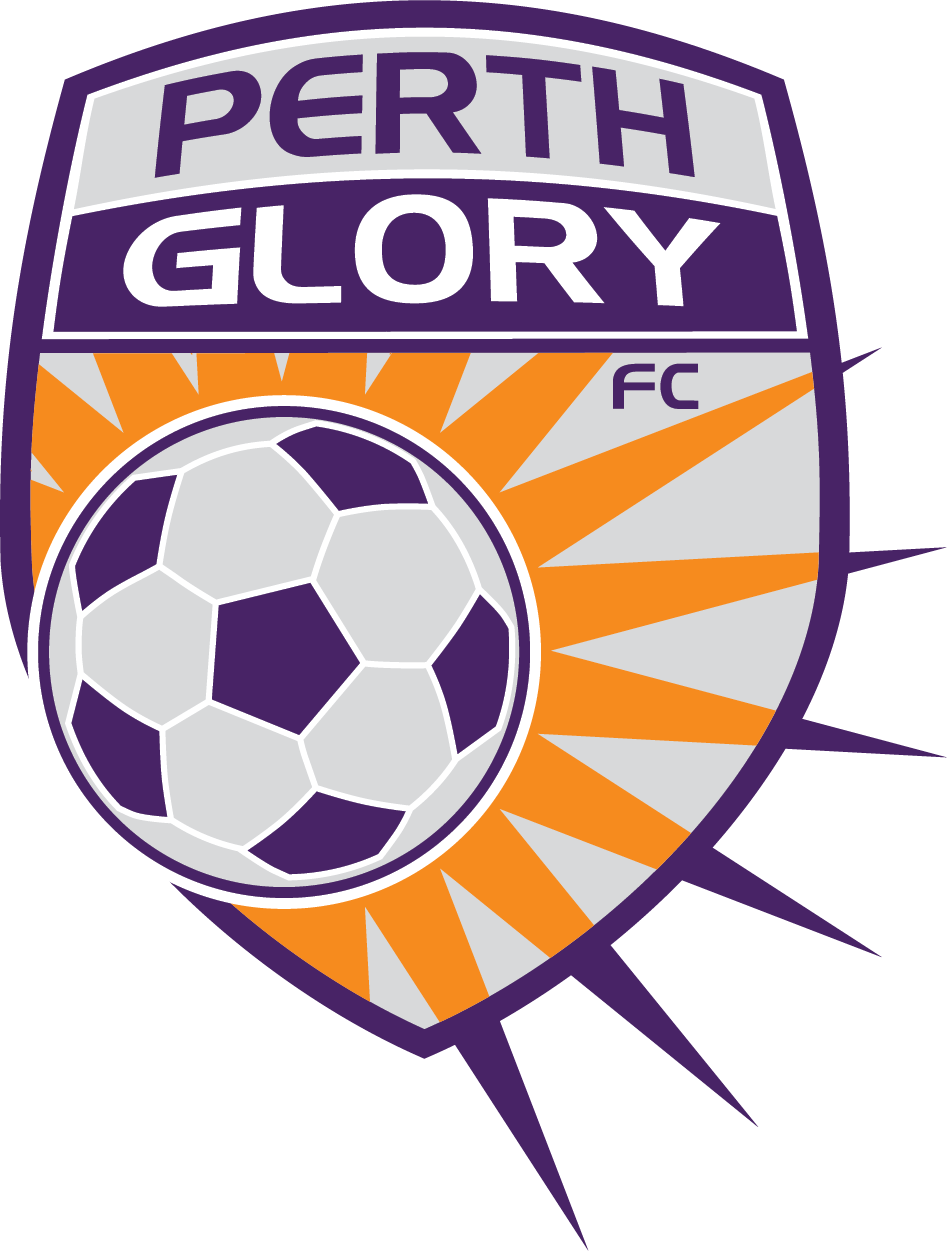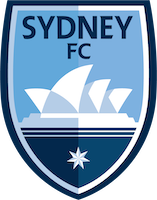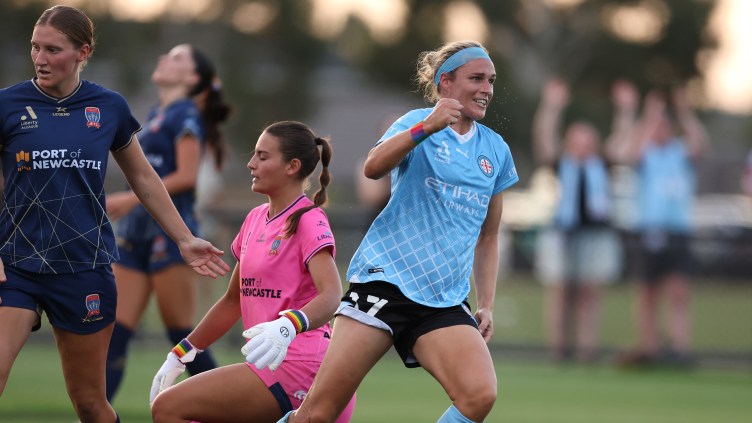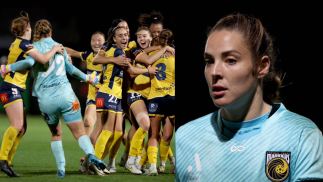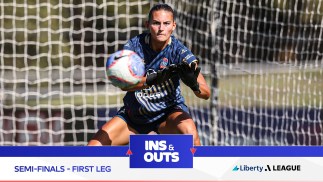Girls FC’s Sally Shipard took some time out with 25-year-old referee Kate Jacewicz
Girls FC-s Sally Shipard took some time out with 25-year-old referee Kate Jacewicz. Kate has established herself as a highly respected referee in football circles here in Australia, and soon will worldwide, having recently gained her FIFA badge. She was named Referee of the Year for the 2010/2011 Westfield W-League season, and hopes to one day referee at the FIFA Women-s World Cup.
Football would have be one of the most difficult games to control. As a referee, you are the only official in the middle of the pitch watching 22 players with two lines people covering only half each. In comparison three referees officiate such games as basketball, where there are also fewer players.
As a player, I have a great amount of respect for referees. Not all decisions sway in your favour; however, I believe it all tends to even out eventually. Never having spoken a word to Kate away from a game, I thoroughly enjoyed the conversation we shared. She provided me with an insight into the life of an elite referee. Enjoy …
DOB: 6 April (happy birthday for next week!)
Place of birth: Manly, Sydney
SS: Where do you live now?
KJ:I live in Melbourne now, however i grew up on the Gold Coast. I was there for 24 years and then my partner and I decided to travel around Australia and Melbourne was as far as we got. Towards the end of 2009 I was refereeing the second season of the W-League so we based ourselves in the area of Sydney and i travelled down to Canberra, up to the central coast and Newcastle.
SS: How long have you been a referee for?
KJ: I-ve been refereeing since I was 13. I went to my first state titles at 17 in QLD. The following year, I went to state and nationals also. I was at nationals for the next four years after that.
SS: How does it work with refereeing? How do your trial and how are you selected?
KJ: In order to get to state titles your branch has to nominate you. I was nominated to go to the QLD state titles. There is a state coach and assessors who attend the titles, and from there your performance is judged and you are ranked. The first referee gets the final and the next two down get the semis, and that-s how it-s graded. In order to go to nationals, you have to get the grand final. I had the final so I was able to go.
SS: Have you always aspired to referee at the level in which you find yourself now? Or has it been a natural progression?
KJ: It was definitely a natural progression. At my first state titles, they said to me you have a natural talent, but you-re still quite raw. I believe it stemmed from knowing the game and playing so long myself. I guess they saw some potential. I came back the next year and the development they had noticed put me in really good stead. They saw a huge improvement and I-ve basically taken it from there. I was not good enough to make it as a player, so I thought I would try refereeing. And it-s just taken off.
SS: As a referee, what are your strengths?
KJ: My ability to read and understand the game and being able to talk to players. Alen Kidler spoke a lot about the spirit of the game. A lot of people that start off with their refereeing don-t have that understanding. A lot of referees go in there ‘gung ho- with cards and don-t really feel the need to talk to players. But I think that-s how refs can get a good feel of the game, by talking with the players.
SS: Do you receive technical about feedback in regards to your performance?
KJ: We are assessed every game. For instance in the Westfield W-League, our assessors take home a video of the game. They will assess us first hand on the day, and then they will analyse the DVD and every part of our game. We will receive feedback soon after and be told what to work on.
SS: Congrats in regards to your Referee of the Year award. You must be rather chuffed?
KJ: Yes, it was good. It was pretty nerve-wracking. It was a great season. I believe it was the best season so far. I got a fair few games, which was always nice, and being sent all around the place as well. The opportunity to travel was fantastic. Of course, it-s quite hard jugging travel with full-time work. When you have to leave all of a sudden for a weekend, it-s not all pleasant. But I have a great deal of fun.
SS: In regards to work …
KJ: I work at an internet-based wine company called Get Wines Direct. I-m in the distribution centre, where I check all the orders and pack them all up into cages. So it-s physical work the whole day.
SS: Am I right in assuming you want to take your refereeing further?
KJ: Yes, it-s flexible. For example, I have just got back from Japan and I-m about to leave for Thailand in April. I have so much time off and it-s great how I can leave and know that I can return to my job. It-s rather secure.
SS: How did the opportunity arise to head overseas?
KJ: Well I now have my FIFA badge. It-s always been the holy grail for me. A few years ago, I wasn-t sure where I wanted to be. I was going through a rough time and one particular guy believed in me. Alen Kidler pushed me and pushed me, and now I-ve finally got there. I basically owe it to him. I still have a little way to go though.
SS: How on earth would you go about in getting a FIFA badge?
KJ: It-s basically a nomination process. You have to be involved in the national competition, so luckily Australia has a women-s national league now. Then Gary Power, the national elite panel manager, nominates you to FIFA and puts together your portfolio. He then sends it to FIFA in Zurich, and they have to stamp the yes or no.
SS: This will provide you with the opportunity to travel the world as a referee?
KJ: Yes, essentially. Getting your FIFA badge is only one step. In the first couple of years you are assigned friendlies and smaller internationals. You don-t get as much international travel. After two years, you have the opportunity to be nominated for the AFC elite panel. We are also in the AFC confederation, similar to the Qantas Socceroos and the Westfield Matildas. We can then be promoted to the AFC panel and then this will allow you to go to FIFA tournaments. Or the AFC tournaments. So the first step is the FIFA badge, but I would like to be on the elite panel too.
SS: That-s obviously your next goal. In regards to your own training, what is a typical week like?
KJ: I swim twice a week. I have a program with my trainer. I do yoga during the week, and on Thursdays we have referee training. I have three other sessions each week with my trainer.
SS: So you are pretty much full time. I guess at the end of the day you have to be fit enough to keep up with the game?
KJ: Yes, and we do fitness testing as well. We have a FIFA referee test, and it-s running around a 400-metre track and you have to be under a certain time. Sprints are involved, and they must be repetitive. It-s all a bit complicated. Down in Melbourne, we do a lot of road runs and train on hard surfaces. It-s really hard on the joints. The boys down here are awesome. A few of the Hyundai A-League guys are down here. It-s really good training with them.
SS: Speaking from a player-s perspective, your skin must grow thicker and thicker each match. The amount of ‘mouth- you must deal with. How do you go about keeping people on side?
KJ: I-m not sure if the players are aware of this, but FFA brought out the ‘respect- campaign. The word respect is on our shirts. I-ve been to a few seminars and it-s said that we should have respect. And I think to myself, well no, it doesn-t necessarily work like that. In order to gain respect, you must provide it—you cannot demand it. So I make sure I respect the players, coaches and the game. Instead of walking out there thinking I-m in charge. You-re thinking this is the players- game and you need to look after it and make sure everyone is safe.
I have made it a habit and an important role of mine to learn all the girls- names in the Westfield W-League. In the first couple of weeks, I had strange looks from a bunch of the girls, in that ‘Oh my, she knows my name-. By the end of the season, it was much easier. I-d built my rapport from the start, and by the end we all kind of knew each other out on the field. You don-t know them personally, but I guess in a professional sense you do. So yeah, respect the players first.
SS: What kind of advice would you give to a young, aspiring referee?
KJ: Be yourself. There-s no use becoming a referee robot. Players respond to personality, and so does the game. Let your personality come through. Smile. Smiling gets you anywhere. Most of the time you smile and the player will loosen up and laugh with you.
Sometimes there are a few erratic challenges, and when this doesn-t change I-m left with no choice but to book the player. I will have a strong word with the player or the captain for that side. That is a strategy I generally apply, and it-s a way to manage a disruptive player.
Also, find a person that you can talk to, some kind of mentor so you can talk to someone your trust about your games—there-s no point speaking with 10 different sources. Refereeing itself is so opinion-based. If you get too many opinions you will become confused and will not be sure of which way to go. So find that support group and stick with them. They will get you through and help you.

